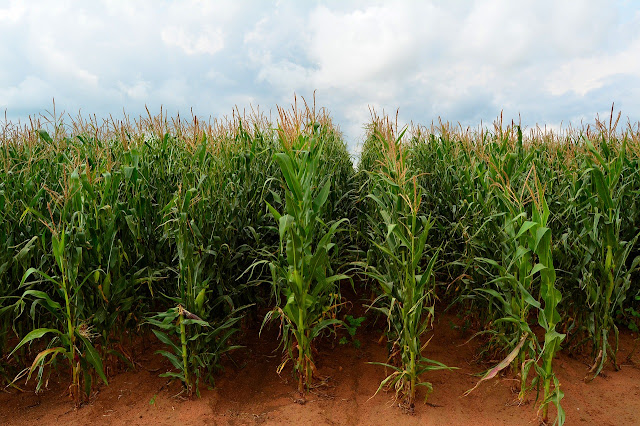Monoculture farming, a widespread agricultural practice, involves cultivating a single crop repeatedly on the same land year after year. While it has certain advantages, such as simplified management and increased crop yields, it also comes with significant drawbacks, particularly...
Monoculture farming, a widespread agricultural practice, involves cultivating a single crop repeatedly on the same land year after year. While it has certain advantages, such as simplified management and increased crop yields, it also comes with significant drawbacks, particularly concerning soil health. In this blog, we will delve into the profound impact of monoculture farming on soil health, shedding light on its consequences and potential solutions.
The Impact of Monoculture Farming on Soil Health:
Let's explore the various ways in which monoculture farming can negatively affect the health of our soils:
1. Soil Nutrient Depletion:
Monoculture farming often focuses on a single crop, depleting specific nutrients from the soil that are crucial for that particular plant. Over time, this leads to nutrient imbalances and reduces soil fertility.
2. Increased Pest and Disease Pressure:
The repetitive cultivation of the same crop creates ideal conditions for pests and diseases to thrive, resulting in increased reliance on pesticides, which can harm soil health.
3. Soil Erosion:
Monoculture farming contributes to soil erosion due to the lack of crop diversity and varied root structures, making the topsoil vulnerable to erosion during heavy rains or wind.
4. Reduced Microbial Diversity:
Monoculture farming limits the diversity of soil microorganisms, essential for nutrient cycling and maintaining soil structure.
5. Soil Compaction:
Continuous use of heavy machinery in monoculture fields can lead to soil compaction, negatively affecting root growth and overall soil health.
6. Decline in Organic Matter:
Monoculture practices often result in a decline in organic matter, crucial for improving soil structure, moisture retention, and nutrient availability.
7. Loss of Biodiversity:
Monoculture farming often leads to the removal of natural habitats, disrupting ecosystems and impacting soil health.
8. Long-Term Sustainability Challenges:
While monoculture farming may yield short-term gains, it poses long-term challenges related to soil degradation and reduced agricultural sustainability.
Mitigating the Impact:
Implementing sustainable agricultural practices, such as crop rotation, cover cropping, and organic farming methods, can help mitigate the negative impact of monoculture farming on soil health.
Conclusion:
Monoculture farming, while beneficial in certain aspects, poses a substantial threat to soil health. Soil nutrient depletion, increased pest pressure, erosion, and reduced microbial diversity are just a few of the issues associated with this practice. To ensure the long-term health and productivity of our soils, adopting sustainable farming practices is crucial. By embracing crop diversity and eco-friendly methods, we can cultivate healthier soils and sustainably meet the growing demands of agriculture.
Thank you for visiting us!
We appreciate your interest in understanding the impact of monoculture farming on soil health. Stay tuned for more informative articles on agriculture, sustainability, and environmental conservation. If you have any questions or would like to learn more, please feel free to reach out to us. Together, we can work towards a greener, healthier planet.














